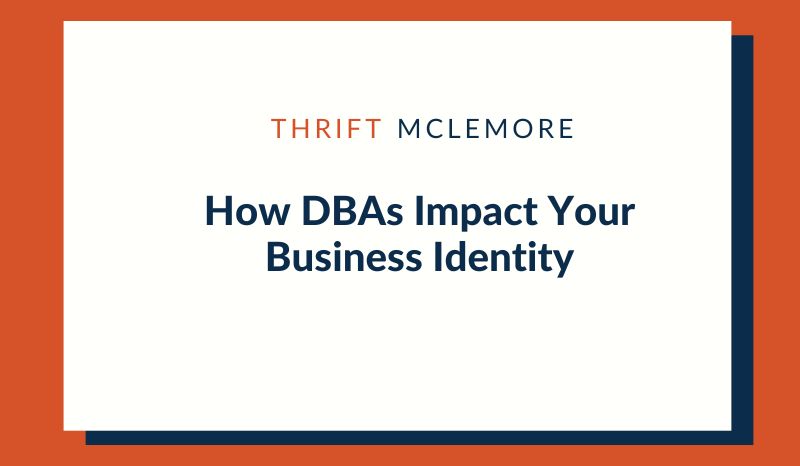Most people have probably heard of PepsiCo and Alphabet Inc. However, these companies also operate under more widely known names: Pepsi and Google. So, how do these companies operate under different names at the same time? The answer is simple. They use a DBA.
What is a DBA?
The concept of “Doing Business As” (DBA), commonly referred to as a trade name or fictitious name, allows a business to operate under a name different from its legally registered name.
Utilizing a DBA does not mean that a company creates a separate entity; rather, the DBA acts as an alias for the business.
Example of How a DBA Works:
John and Jane Doe own an LLC called Doe, LLC. They want to open a coffee shop but don’t think that Doe, LLC will catch customers’ attention. They can file a DBA to operate under a new name, such as John and Jane’s Java Café, without forming an entirely new business entity.
Why Should You Utilize a DBA?
DBAs offer a multitude of benefits to companies, opening up new possibilities and opportunities. Some of these benefits include:
Branding and Marketing Flexibility: As demonstrated in the example above, DBAs allow companies to create a distinct brand identity separate from their legally registered name. Businesses can choose names that more closely align and resonate with their target audience, making it easier to market the products or services they provide.
Expansion and Diversification: Many businesses start their journey focusing on a single market. However, as time passes and the company grows, owners may wish to expand into new markets or diversify their business offerings. DBAs serve as a legal mechanism allowing owners to use different names for different business segments.
For example, an Atlanta business starting solely as a landscaping service may evolve into a larger national company that now also offers gardening supplies and lawn care products.
Different DBAs for each business segment allow owners to create clear differentiation and avoid consumer confusion.
Cost-Effective: In Georgia, filing for a DBA is generally more cost-effective than creating an entirely new legal entity. Because registration fees for creating a DBA typically run lower than creating an entirely new entity, DBAs provide an attractive alternative for Georgia small business owners and startups looking to save on expenses.
We are here to help!
A DBA offers businesses a flexible and cost-effective method to operate under different names, enhancing their brand awareness and allowing expansion into new markets.
Whether you operate a sole proprietorship looking to establish a professional image or a growing company seeking to diversify your business offerings, a DBA can provide the necessary legal framework to help you achieve your goals.
Contact our office to schedule a meeting with one of our Georgia business attorneys to learn more about how a DBA can benefit you and your business.







